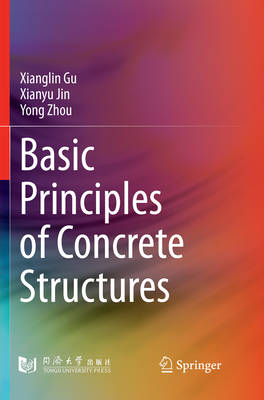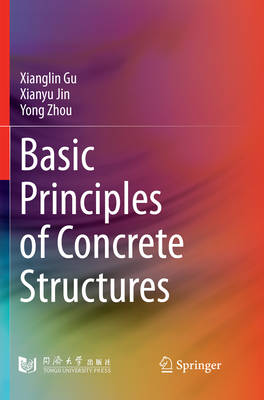
- Retrait gratuit dans votre magasin Club
- 7.000.000 titres dans notre catalogue
- Payer en toute sécurité
- Toujours un magasin près de chez vous
- Retrait gratuit dans votre magasin Club
- 7.000.0000 titres dans notre catalogue
- Payer en toute sécurité
- Toujours un magasin près de chez vous
Description
Based on the latest version of designing codes both for buildings and bridges (GB50010-2010 and JTG D62-2004), this book starts from steel and concrete materials, whose properties are very important to the mechanical behavior of concrete structural members. Step by step, analysis of reinforced and prestressed concrete members under basic loading types (tension, compression, flexure, shearing and torsion) and environmental actions are introduced. The characteristic of the book that distinguishes it from other textbooks on concrete structures is that more emphasis has been laid on the basic theories of reinforced concrete and the application of the basic theories in design of new structures and analysis of existing structures. Examples and problems in each chapter are carefully designed to cover every important knowledge point. As a basic course for undergraduates majoring in civil engineering, this course is different from either the previously learnt mechanics courses or the design courses to be learnt. Compared with mechanics courses, the basic theories of reinforced concrete structures cannot be solely derived by theoretical analysis. And compared with design courses, this course emphasizes the introduction of basic theories rather than simply being a translation of design specifications. The book will focus on both the theoretical derivations and the engineering practices.
Spécifications
Parties prenantes
- Auteur(s) :
- Editeur:
Contenu
- Nombre de pages :
- 606
- Langue:
- Anglais
Caractéristiques
- EAN:
- 9783662569382
- Date de parution :
- 27-03-19
- Format:
- Livre broché
- Format numérique:
- Trade paperback (VS)
- Dimensions :
- 155 mm x 235 mm
- Poids :
- 1272 g

Les avis
Nous publions uniquement les avis qui respectent les conditions requises. Consultez nos conditions pour les avis.






